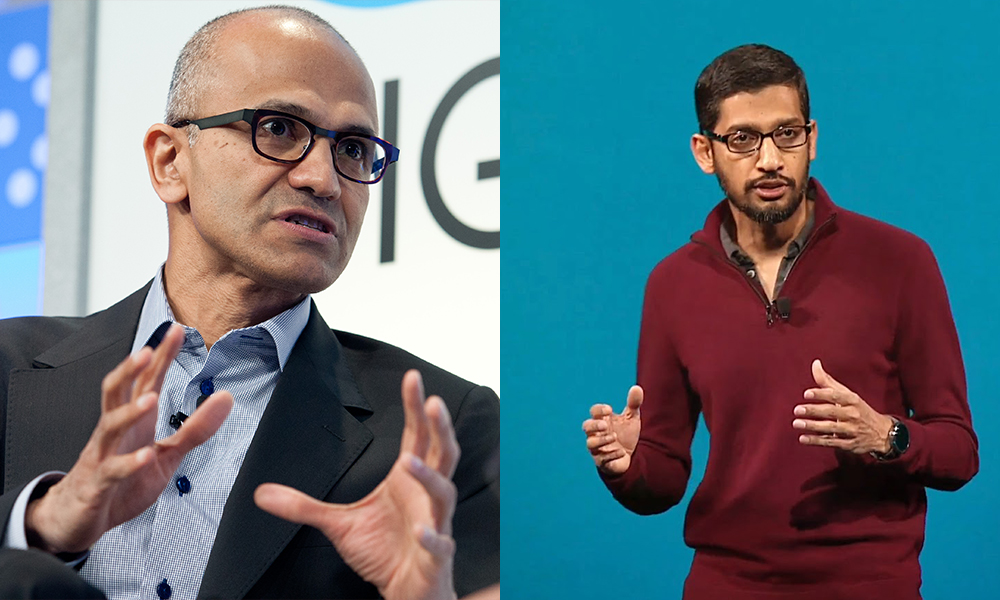The recent appointment of Sundar Pichai as the CEO of Google in a mere span of eleven years with the company. This has once again thrown the limelight on Indians. Also, they constitute the leading percentage of immigrants to occupy the top positions. Especially in the field of technology, and are leading top brands like Microsoft, Nokia, Adobe Systems, etc., and recently Google. So, ever since their first foray into Silicon Valley during the 1970s and the 1980s. Indians have broken all boundaries and reached exemplary positions of power. Thus, various factors attribute to this phenomenal wave. So, some of them are:-
Emphasis in English Education:
The competitive education system has led to the cropping of English medium schools in India. Hence, owing to which Indians have become quite fluent and well-versed with English at a very young age. Therefore, the combination of excellent communication skills and their flair for technology gives them an edge over their Chinese, South Korean, and Taiwanese counterparts.
Aspiration:
Moreover, the poverty and the difficult life of an average Indian. This fuel unfathomable motivation, and profound aspirations in them to make a mark in life and scale greater heights.
For e.g. Sundar Pichai, CEO of google, hails from a humble background from Chennai. He graduated from IIT Kharagpur. Also, secured a scholarship to study at Stanford University.
Understanding and Perception of the Emerging Markets:
Emerging markets like India are the biggest target of any tech company for future growth. However, it is natural for Indian origin individuals to understand the challenges, problems, and potential of poverty-stricken developing countries. Which an individual of China or Korea would not be able to relate to.
Satya Nadella, Microsoft CEO launched Windows 10 last month. When he himself was in Kenya. Gurdeep Singh Pall, at Microsoft, not only runs the Skype team but is also behind VOIP technology and Skype Translator. Numerous other examples testify to this fact.
High Engineering Skills:
Nevertheless, most Indian senior executives are coders and engineers. Which are preferred over marketing and administrative people in tech companies like Google, Microsoft, and Facebook, etc. Also, people who envision and build things are always preferred over sellers. As technology implies innovation and invention. Similarly, in most of the CEOs like Shantanu Narayan, Padmasree Warrior, Sabeer Bhatia, and numerous others, engineering is a commonality.
Participative Management Style:
And again, Indians have successfully broken the myth that they make great engineers but poor managers. Hence, the research of St. Gallen University in Switzerland showed that Indian executives practiced participative management and paid attention to building meaningful relationships with subordinates. So, their leadership style invoked a strong emotional bond between superiors and subordinates. Which majorly attributed to their success.
Humility:
The management style of Indians successfully earned the employees loyalty. By invoking the feeling that the company cared for them. Moreover, studies have proved them to be more humble than their U.S. counterparts. And thus are more adept at rolling back the dice. And make amends before any situation gets out of hand. This works in their favor.
Perseverance:
Indians are known to persevere the most. A difficult middle-class lifestyle and the culture to grow slow but steady helps them be level-headed. So, to be determined in life when going gets tough is taught by most Indian parents.
They tend to apply the same values in professional life as well. Whilst ensuring that they are learning the business thoroughly about every aspect. This certainly gives them an advantage as they climb higher as a CEO.
Ability to Dream and Adapt:
Indians have proven their ability to dream, persevere for it and adapt to any situation to realize it. Their calmness in handling any crisis situation is exemplary. Being future-oriented, they achieved extraordinary results from seemingly hopeless situations.
Building a Strong Support Network:
The first generation of successful entrepreneurs has openly talked about the hurdles and challenges faced by them. And came together to mentor and teach future generations. Thus easing their path. They formed network organizations to teach and mobilize information and skills.
Role Models and Financial Aid:
The first successful lot of entrepreneurs not only served as visible and vocal role models and mentors. But they also provided various funding and assistance for other deserving Indians.
It is rightly said that Indian managers are more successful because of their blend of genuine personal humility. And intense professional will. International magazine Time once rightly stated CEOs as India’s leading export. And the ideal training ground for global bosses.
For reading more such interesting blogs, visit our website.


